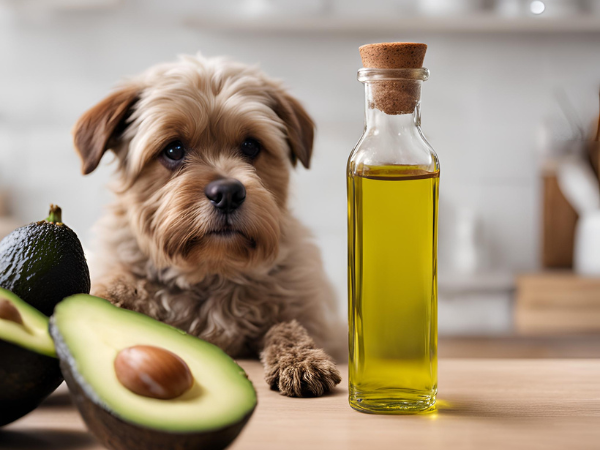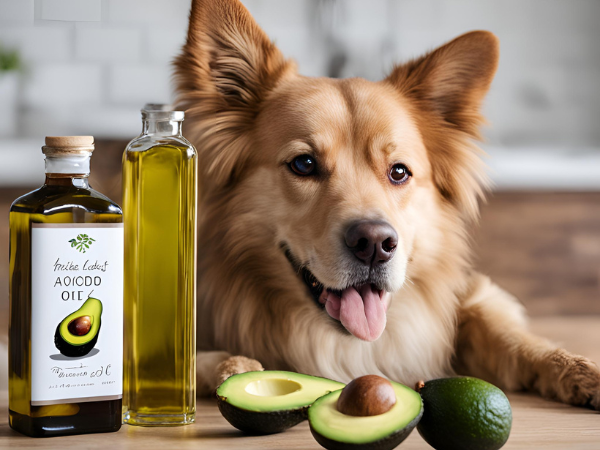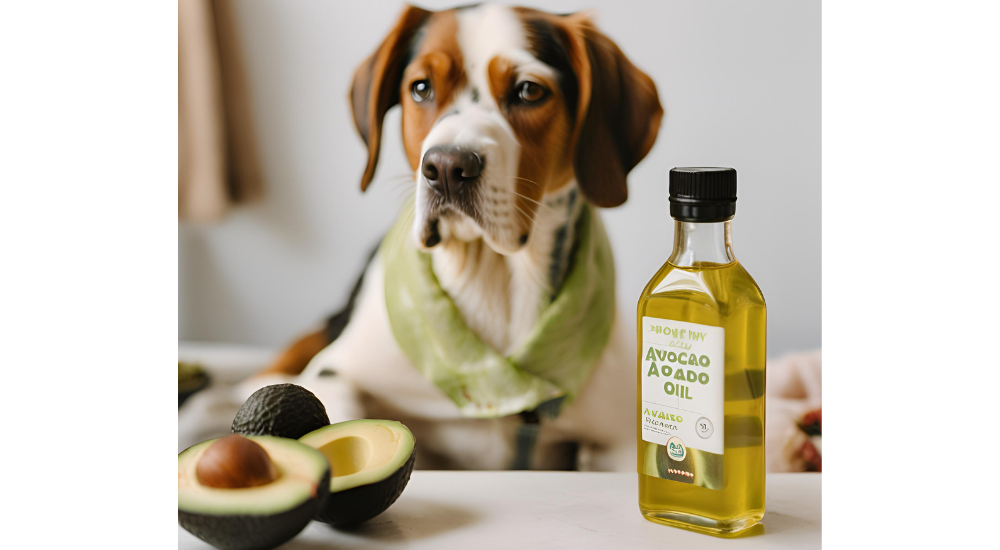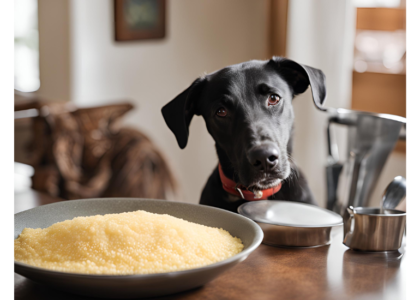Yes, dogs can have avocado oil in moderation. It offers several health benefits for your dog.
Avocado oil is rich in healthy fats, vitamins, and antioxidants, making it a beneficial addition to your dog’s diet. The oil can improve skin health, promote a shiny coat, and support overall wellness. It contains oleic acid, which helps reduce inflammation.
Small amounts of avocado oil can be added to your dog’s food, but it’s essential to start slowly and monitor for any adverse reactions. Too much avocado oil can lead to digestive issues, so moderation is key to reaping its health benefits without causing harm.
Table of Contents
Health Benefits Avocado Oil For Dogs
Avocado oil is a popular ingredient in many kitchens due to its health benefits for humans. But can dogs have avocado oil? Surprisingly, yes! This superfood offers numerous advantages for our furry friends. Understanding the health benefits of avocado oil for dogs can help pet owners make informed decisions about their pets’ diets.
Nutritional Value Of Avocado Oil
Avocado oil is rich in essential nutrients that can benefit dogs. Here are some key components:
- Monounsaturated fats: These healthy fats support heart health and energy levels.
- Vitamin E: An antioxidant that helps maintain a healthy coat and skin.
- Omega-3 fatty acids: Promote brain function and reduce inflammation.
- Oleic acid: A fatty acid that boosts the immune system.
Here’s a table summarizing the nutritional content per tablespoon of avocado oil:
| Nutrient | Amount |
|---|---|
| Calories | 120 |
| Total Fat | 14g |
| Vitamin E | 2mg |
| Omega-3 Fatty Acids | 0.1g |
| Oleic Acid | 9.8g |
These nutrients make avocado oil a valuable addition to your dog’s diet, provided it’s used in moderation.
Potential Health Effects On Dogs
Avocado oil can offer several health benefits for dogs. Here are some potential effects:
- Improved Skin and Coat: Vitamin E and healthy fats can enhance the shine and softness of your dog’s coat.
- Joint Health: Omega-3 fatty acids help reduce inflammation, which is beneficial for dogs with arthritis.
- Boosted Immune System: Oleic acid supports immune function, helping dogs fight off infections.
- Heart Health: Monounsaturated fats are good for cardiovascular health, promoting a healthy heart.
- Energy Levels: The fats in avocado oil can provide a quick energy boost for active dogs.
Always introduce new foods gradually to monitor for any adverse reactions. Consult your vet before making significant changes to your dog’s diet.

Risks And Concerns
Avocado oil is rich in nutrients and often touted as a superfood for humans. But can dogs have avocado oil? Understanding the risks and concerns is essential for any dog owner thinking about adding this oil to their pet’s diet.
Toxicity Risks
One of the main concerns with avocado oil is its potential toxicity to dogs. Avocados contain a substance called persin, which can be harmful to many animals, including dogs. Although the concentration of persin in avocado oil is much lower than in the fruit, there are still some risks involved.
Here are some toxicity risks associated with avocado oil:
- Vomiting: Dogs that ingest too much avocado oil may experience vomiting.
- Diarrhea: Consuming large amounts can lead to diarrhea, causing dehydration and discomfort.
- Cardiovascular issues: In severe cases, persin can cause heart problems, although this is rare.
It’s crucial to monitor your dog for any adverse reactions after introducing avocado oil. Even though the risk is low, it’s better to be cautious.
| Symptom | Severity | Action |
|---|---|---|
| Vomiting | Mild to Moderate | Consult a vet if persistent |
| Diarrhea | Moderate | Ensure hydration, consult a vet |
| Cardiovascular Issues | Severe | Immediate vet consultation |
Digestive Issues
Avocado oil can also cause digestive issues in dogs. Introducing any new food or supplement can upset a dog’s stomach, and avocado oil is no exception.
Here are some digestive concerns to keep in mind:
- Upset Stomach: Dogs may experience an upset stomach when first introduced to avocado oil.
- Gas: Increased gas is another common issue, which can cause discomfort for your pet.
- Pancreatitis: High-fat content in avocado oil may lead to pancreatitis, especially in dogs with sensitive stomachs.
To minimize these risks, introduce avocado oil gradually. Start with small amounts and observe your dog’s reaction. If any digestive problems arise, discontinue use immediately.
| Symptom | Severity | Action |
|---|---|---|
| Upset Stomach | Mild | Monitor and reduce dosage |
| Gas | Mild to Moderate | Monitor and adjust diet |
| Pancreatitis | Severe | Immediate vet consultation |
Keeping these concerns in mind can help ensure the well-being of your dog while exploring the benefits of avocado oil.

Safe Usage
Avocado oil is a popular superfood for humans, but can dogs have avocado oil? The answer is yes, but safe usage is crucial. This guide will help you understand how to safely introduce avocado oil to your dog’s diet, ensuring their health and happiness.
Consulting A Vet
Before adding any new food to your dog’s diet, always consult a vet. They know your dog’s health history and can provide personalized advice. Here are some reasons why consulting a vet is essential:
- Allergies: Some dogs may be allergic to avocado oil.
- Existing Conditions: Dogs with pancreatitis or obesity may need special considerations.
- Safe Introduction: Vets can suggest how to introduce the oil gradually.
During the vet consultation, ask the following questions:
- Is avocado oil safe for my dog’s current health conditions?
- What is the recommended dosage for my dog’s size and weight?
- How should I monitor my dog for any adverse reactions?
A vet’s guidance ensures that you’re making the best decision for your dog’s well-being. Always follow their recommendations and keep track of any changes in your dog’s behavior or health.
Proper Dosage And Application
The proper dosage of avocado oil is key to its benefits. Giving too much can lead to digestive issues or weight gain. Here is a general guideline for dosage based on your dog’s weight:
| Dog’s Weight | Recommended Dosage |
|---|---|
| Up to 20 lbs | 1/4 teaspoon per day |
| 20-50 lbs | 1/2 teaspoon per day |
| 50+ lbs | 1 teaspoon per day |
Always start with a smaller amount to see how your dog reacts. Gradually increase to the recommended dosage. Mix the oil with your dog’s regular food to make it easier to consume.
Besides adding it to food, you can use avocado oil topically. It’s great for moisturizing dry skin or healing minor wounds. Apply a small amount to the affected area and gently massage it in. Always monitor for any signs of irritation or allergic reactions.
Proper dosage and application of avocado oil ensure your dog gets the maximum benefits without any adverse effects. Following these guidelines will help keep your furry friend happy and healthy.
Avocado Oil In Dog Products
Avocado oil has gained popularity in human foods and beauty products, thanks to its rich nutrients and health benefits. But can dogs have avocado oil? The answer is yes, in moderation. Avocado oil is now found in various dog products, from food to shampoos. This blog post explores the benefits and uses of avocado oil in dog products.
Avocado Oil In Dog Food
Avocado oil is a great addition to dog food. It offers numerous health benefits for your furry friend:
- Rich in healthy fats: Avocado oil contains monounsaturated fats, which support heart health and provide energy.
- Vitamin-rich: It is packed with vitamins A, D, and E, which boost immunity and promote healthy skin and coat.
- Antioxidants: These help fight free radicals, reducing inflammation and supporting overall health.
Many commercial dog foods now include avocado oil as an ingredient. It enhances the nutritional profile and makes the food more palatable. Here is a table showing some popular dog food brands that use avocado oil:
| Brand | Product | Benefits |
|---|---|---|
| Avoderm | Natural Dog Food | Improves skin and coat health |
| Blue Buffalo | Life Protection Formula | Boosts immune system |
| Wellness | Complete Health | Enhances digestion |
Avocado Oil In Dog Shampoos
Avocado oil is not just for food; it’s also a popular ingredient in dog shampoos. It offers several benefits for your dog’s skin and coat:
- Moisturizing properties: Avocado oil hydrates the skin, reducing dryness and flakiness.
- Soothes irritated skin: It has anti-inflammatory properties that can help soothe skin conditions like eczema and dermatitis.
- Promotes a shiny coat: The vitamins and fatty acids in avocado oil make the coat shiny and healthy.
Here are some examples of dog shampoos that contain avocado oil:
| Brand | Product | Benefits |
|---|---|---|
| Earthbath | Oatmeal & Aloe Shampoo | Relieves dry, itchy skin |
| Burt’s Bees | Oatmeal Dog Shampoo | Moisturizes and softens fur |
| Vet’s Best | Hypo-Allergenic Shampoo | Soothes sensitive skin |
These shampoos make bathing your dog a pleasant experience while providing essential nutrients to their skin and coat.
Frequently Asked Questions
Can Dogs Safely Consume Avocado Oil?
Yes, dogs can safely consume avocado oil in moderation. It provides healthy fats and antioxidants. Always consult your vet before adding new foods to your dog’s diet.
What Are The Benefits Of Avocado Oil For Dogs?
Avocado oil benefits dogs by promoting a healthy coat and skin. It’s rich in vitamins and antioxidants, which support overall health.
How Much Avocado Oil Should I Give My Dog?
Start with a small amount, like a teaspoon per day. Monitor your dog for any adverse reactions. Always consult your vet for personalized advice.
Is Avocado Oil Toxic To Dogs?
No, avocado oil itself is not toxic to dogs. However, the fruit, pit, and skin of avocados contain persin, which can be harmful.
Conclusion
Avocado oil can be beneficial for dogs in moderation. Ensure it’s pure and free from harmful additives. Always consult your vet before introducing new foods. A small amount can boost your dog’s coat health. Remember, balance is key to a healthy canine diet.
Your dog’s well-being should always come first.










